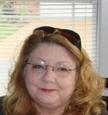One of the most frequent questions that I hear from family members is, “Why do I need to be in counseling, when she is the alcoholic/addict? The family members that do come into treatment willingly and eagerly at the beginning are most often motivated to “help” the addict. The idea that spouses and other kin need help for their own issues often feels like an insult initially.
Non-addicted loved ones need their own help because they are negatively affected by the disease in several ways. Addiction runs through generations in families. Spouses of alcoholics/addicts often come from alcoholic or otherwise addicted families of origin. This fact points out that the non-addicted spouse was affected by the disease of alcoholism before she married the alcoholic. Addiction in your family of origin increases the probability that you will marry an alcoholic. Thus addiction influences you to marry into another addiction environment. The spouse brought her own addiction-related issues into the marriage. When you get treatment for yourself, you get to identify and work through your own issues.
Non-addicted loved ones always experience pain and suffering in the midst of addiction. To deal with the pain, they develop survival behavior that gets solidified into stereotypical roles within the family. The interaction of the roles creates the syndrome that helps keep the disease in place.
Part of the syndrome is enabling. An example of enabling is the ongoing struggle that the addict and the spouse get into over the chemical or disease. Focusing on this struggle enables the addict to perceive this struggle as “the struggle”, rather than coming face to face with his own internal battle with the disease. Spouses and other relatives keep trying harder and harder to solve the problem of the addiction. Their efforts get more and more compulsive. They get sicker emotionally, physically, and spiritually-just like the addict.
One of the empowering events that happen in treatment with non-addicted relatives, especially spouses and parents, is that they learn that they did not cause the addiction, and that their efforts to fix it is not working and will not work in the future. When you really understand that it’s not your fault, that you didn’t cause it, that you can’t control someone else’s behavior and that you can’t cure their addiction, you can once again focus on the things in your life that you do have power over – you.
Additionally, since you are not minutely involved in trying to solve each tiny piece of an addict’s addiction problems, you can step back and observe, then seize an opportunity (usually a crisis), to help your significant other find recovery. If you get help and find recovery, your chemically dependent significant other is extremely more likely to find recovery, and to stay sober after treatment.
In recovery for yourself, you learn about the legacy of addiction. There is also a “legacy of recovery”. Because addiction is a family disease with addiction being passed down generation after generation, your being in recovery will have a positive impact on future generations as they find themselves with addiction and seek recovery for it. This is the legacy of recovery. If one person finds recovery in a family, it increases the likelihood that others in that family will too. Whole families can recover, beginning with one brave, resolute person.
If you or someone that you love needs help for addiction, either as an addict or as a family member affected by addiction, help is available. My counseling services as well as the educational information on my website are available to you. My website, a work in progress has numerous articles on Addiction and Recovery, Marriage, Sexual Addiction, Mental Health, and Skill Development. Other informational resources on my website include a Recommended Readings page, a Links page, an Ask Peggy column, Surveys, and e-books. To fill out a survey and let me know what kinds of information that you would like to have or to purchase my e-books, go to http://www.peggyferguson.com/ServicesProvided.en.html To sign up for a newsletter that will alert you to additional informational opportunities on this topics or others, go to http://www.peggyferguson.com
Dr. Peggy L. Ferguson, Ph.D., LADC, LMFT, Marriage/Family Therapist, Alcohol/Drug Counselor, Writer, Trainer, Consultant.

Post new comment
Please Register or Login to post new comment.